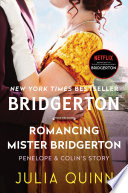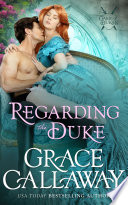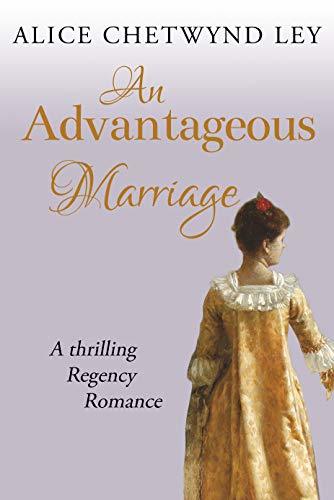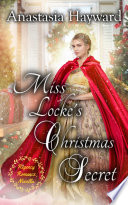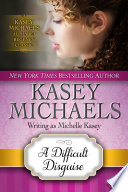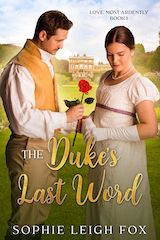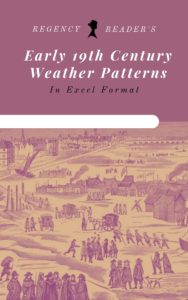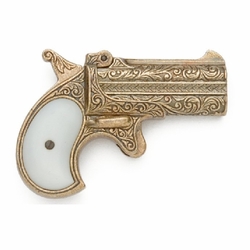
Moniker/Name: tkh
Source of Question: Research
Your Question: I have read hundreds of pages on titles, forms of address, etc. I’ve perused the tomes, consulted my shelf of “how they lived” books. I was toying with the idea of writing a Regency novel (not my usual genre), and I personally do prefer to be historically accurate, but in all this research, I can’t find an answer to this — probably dumb — question:
In peerage, how and why are some names hyphenated? All references seem to say, you take name X or name Y when you inherit or are granted a particular title. Or that you take name Z when you marry. Nothing explains how you end up with Abdy-Collins or Bartaby-Smith.
Which raises the related question: If you get a hyphenated name because of some joining of estates or titles, do you lose half your name if your husband dies, or you are disinherited, or whatever unfortunate circumstance occurs?
I greatly appreciate the info you’ve provided on your site. I look forward to hearing if you can help! Thanks! – tkh
Great questions, tkh!
To be fair, my title was a misleading…its likely they weren’t called double barrelled surnames until the Victorian era. But it is so catchy and interesting (and a good lead for further research) that I couldn’t resist. And yes, the double barrelled appears to originate from a shotgun…so its frankly amazing Yankees don’t call hyphenated surnames that, too.
The quickest (and probably oversimplified answer) is that a hyphenated name in Britain was heritable, and typically taken to preserve a family name that would otherwise go extinct. From all my research, this was almost entirely something done by the gentry and in a lot of cases a way of currying favor with relatives or as a condition of inheritance.
There may have also been an element of wanting to reduce confusion about a person’s name. Here is a little of the history of the practice:
“A custom emerged during the eighteenth century of using two surnames as a single entity, which came to be called a double-barreled surname. Its origins are partly to do with the removal of any sign of aliasing in the case where a person was known by more than one separate surname, and partly to do with pleasing rich or influential relatives. In the latter case, adoption of an extra surname could be made a condition of coming into a bequest. As such, it was an upper-class phenomenon in origin, but by the mid-nineteenth century it had come to be seen as an affection…” The Cambridge History of the English Language (1992), Suzanne Romaine p. 349
Aliases on the whole seemed to be more broadly used. In other words, a person could be known by one or more surnames. Recent genealogy research by folks on the interwebs leans towards the theory that aliases where highly localized, and tended also to protect inheritance and interests of children in a single generation (http://genuki.cs.ncl.ac.uk/DEV/DevonMisc/Aliases.html).
According to The Popular Science Monthly (1878) “”
As far as hard as fast rules for double barrelled surnames, my research indicates there were none. In some cases, I found instances of a wife having a double surname while the husband had only one, indicating she modified her name at the time of marriage. Again, this was more likely as a result of inheritance rather than a more modern sensibility about maiden names.
Double barrelled surnames could be joined with or without hyphens. I have found instances where hyphenated names were encouraged to be pronounced as one name where it made sense (eg Gray-Fox would become Grayfox) whereas non hyphenated names appeared to indicate distinction. It appears the primary convention was to move new names outward, but again this wasn’t necessarily required.
From my reading, it also appeared that double surnames were not necessarily passed on to progeny. There was a lot of satirical writing, particularly in the late Victorian era, worrying over a future of quadruple or worse barrelled surnames, a trend which continues today (http://news.bbc.co.uk/2/hi/uk_news/magazine/8040118.stm). For this reason, some decided to take on maiden or other surnames as middle names or bestow them on their children that way. Alternatively, children would take the main paternal surname or adopt whichever name was related to inheritance (this was, for example, why Frank Churchill had a different surname from his father, Mr. Weston).
I found lots of conversation on genealogy boards reporting anomalies and offering up possible explanations for double names alternative to what is explained above, so it appears there were examples of different reasons/practices for multiple last names.
As far as losing your additional surname upon death or disinheritance, I can’t find examples during the Regency of this occurring. That is not to say it didn’t. But I think surname changes were largely at the discretion/control of the individual so its likely the only way to compel someone to change their surname would be to take them to court (or Parliament).
In many cases, during the Regency era Parliament was the ultimate arbiter on name changing. Here are some details on how surname changes were processed in the 19th Century:
The Popular Science Monthly: Supplement, Issues 13-20, 1878
Because, in many cases, a name change literally took an act of Parliament, it was not a matter to be lightly entered in to. Therefore, the scandal of taking a family member (by marriage or birth) to Parliament/court to force them to change their last name would likely be deterrent enough for most to prohibit it occurring.
The concern over aliases, as well, likely limited the probability of folks surnames reverting to originals.
In conclusion, these are all “best available information” answers, as I am by no means an expert in genealogy or naming history/conventions. However, I think it gives us (both Regency readers and writers) a sense of what was going on with those double barrelled surnames.
Feel free to offer your insights, feedback, or research by tweeting at me @Regency_Reader
Love,
Anne
Read more:
Modern grappling with the phenomena: http://www.telegraph.co.uk/women/family/are-we-heading-for-a-generation-of-kids-with-quadruple-barrelled-names0/
History on women changing their surnames upon marriage: http://hsf.org.za/resource-centre/hsf-briefs/whats-in-a-name
Modern Debrett’s on Maiden Names: https://www.debretts.com/debretts-a-to-z/m/maiden-names/

